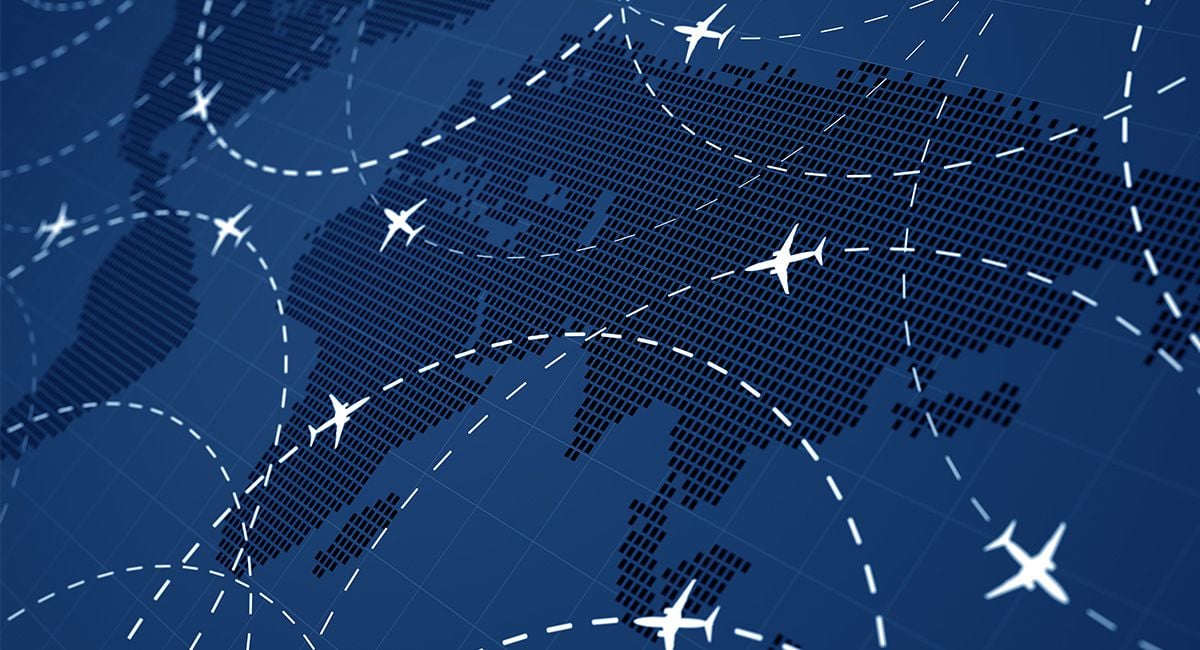
Nick Careen is Senior Vice President for Operations, Safety and Security at the International Air Transport Association (IATA).
Covid-19 has devastated global connectivity. A year-and-a-half into the crisis, international demand is only 15% of pre-crisis levels. Yet people still want to travel — we see strengthening demand in domestic markets. And any alleviation in travel restrictions on international routes results in an immediate spike in bookings.
Unfortunately, reprieves in travel restrictions are few and far between. And that won’t change until governments have the confidence that opening borders will not overwhelm their healthcare systems. It is becoming increasingly clear that Covid-19 is endemic. It’s not going to disappear. So, we need to find a way to deal with the risks and get on with normal lives that include travel.
The answer is data. We know enough about the virus — and its variants — through data to be able to manage its risks. Modeling by Boeing and Airbus using real-world data demonstrates that we can estimate the impact of imported cases of Covid-19 when borders are opened. There is no one-size-fits-all solution, but the modeling does demonstrate that we can be much smarter with calibrated travel policies that address the risks, enable travel, and protect people. Everybody can respect a data-driven decision. That is the way back to normality.

This is no different from how we manage other societal risks, of which there are many. We don’t ban activities such as consuming alcoholic beverages or driving. Instead, we have common-sense rules and disseminate the information necessary for making sensible decisions about how to manage any associated risks. The post-pandemic future will mean doing the same for Covid-19 so we can all get on with our lives.
We believe that borders should be open without restriction to all those who are fully vaccinated. We also believe that we cannot restrict travel to only those who are able to be vaccinated. For those who are not vaccinated, the modeling shows that there are plenty of testing alternatives that can be as effective as quarantining — and in some cases even more effective.
We know that governments are naturally risk averse. But the goal of zero-Covid is likely unattainable. And the economic and social costs of border closures and travel restrictions are quickly becoming unbearable. A recent survey by IATA found that about two thirds of people felt that their quality of life was suffering because of Covid-19 travel restrictions.
How do we get the ball rolling and reconnect the world? An important part of the solution is a more intense and transparent dialogue between governments and the airline industry to move from models to policy and ultimately facilitate international travel. And we must act quickly.
The cost of inaction comes with enormous economic and social consequences — some USD 273 billion in cross-border trade and millions of jobs. At times figures such as these are so large, they can numb us. But behind these numbers are real human costs. Families have been separated. Funerals have been missed. Grandparents have been unable to meet newborn grandchildren. These are the victims of the lack of vision of politicians who are betraying the incredible scientists and medical staff who have worked so hard to create and distribute the vaccines that we were promised would enable a return to normality.
Data can and should drive policies on restarting global travel that manage Covid-19 risks to protect populations, revive livelihoods, and boost economies. There is ample data for governments to safely return our freedom to travel.